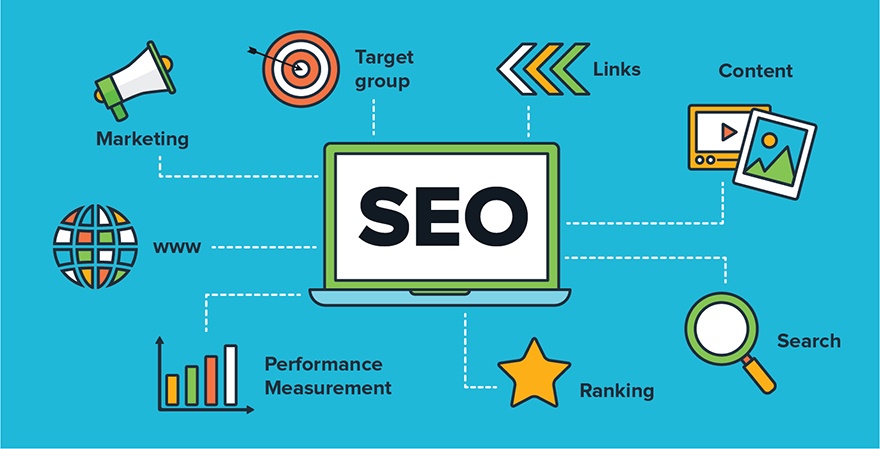Introduction to SEO Audit
Search Engine Optimization or SEO is the new face of marketing that makes your digital presence known. Search optimization and technical SEO is all about designing content and user experience. However, you must draft an ideal SEO strategy to have your website rank and perform better. Search engine algorithms send crawlers to analyze website HTML code, performance, structure, and more. In simple words, the search engine evaluates whether the website fulfills its code of conduct or not. A thorough SEO audit is necessary to ensure a website has all the essential on-page factors present. SEO audit determines if the site has everything needed for indexing and rank-boosting, respectively.
A website needs more than just quality content and keyword density for effective SEO results. Marketers understand that a good SEO audit determines all the ranking and areas of improvement. However, an SEO audit is complex, and not everyone has the expertise to execute the process. Designing and maintaining a checklist is the best way to get you through some search optimization elements. Things change quickly, and an SEO auditor ensures that every aspect remains in the same updated SEO algorithms domain.
Now that you some idea about the importance of SEO audits let us give you a checklist to evaluate your website’s readiness.
SEO Audit Checklist
• Basic SEO
Check if the website has Yoast SEO installed. It is a free plugin available in WordPress, and other CMS used to create a sitemap, Meta tags, and many more. Another factor is to check if you have a sitemap open that helps a crawler find content for easy crawling and indexing your content. You can find a sitemap at xyz.com/sitemap.xml and use Yoast SEO to create one.
The presence of a robots.txt file tells a search engine where they can and cannot go on your site. You can go to xyz.com/robots.txt and create using Google robots.txt generator.
• Review of Keywords
Check and analyze that each page on your website has one primary keyword. Similarly, you need to ensure the natural placement of keywords in the content. You should review keywords with analyzer tools to determine if you have the right keywords present or not. That is why it is better to check https://www.semrush.com/analytics/keywordoverview/ for in-depth keyword analysis.
• Does The Site Contain Analytics and Search Console
Google Analytics and Google Search Console in SEO are essential tools needed for site progress analysis and improvement. Analytics by Google is a free tool that tells you about visitors and their interaction with the site. You can install it by signing up and copying the tracking code into your website. Search Console lets you track your website’s progress and determine which keywords rank best and where to improve. You can link Analytics and Search Console to track everything in the Analytics interface.
• Mobile-Friendly Display
Check if your site has mobile-friendly features and performs well on mobile devices and tablets. Mobile users have increased and have become one of the best sources to achieve traffic and potential leads.
• Indexing Errors and Technical Problems
SEO audits also help in determining any indexing errors or technical problems on the website. Check if the site does not contain duplicate content, no index tags, or unnecessary pages that cause indexing issues. Similarly, broken links, images, missing redirects or alt-texts, etc., are technical errors that damage rankings.
• Excessive or Low-Quality Content
While it may seem counterintuitive, removing low-quality or irrelevant content helps give the site a ranking boost. The process is called site pruning, where you remove unnecessary content to maximize rankings. Check if there is duplicate or outdated information present in the content and remove it.
• Test Website Speed
Website speed is an element that contributes mostly to prevent bounce rate and improvement in rankings. Pages with a loading time within 2 seconds have an average bounce rate of 9%, while others with longer load time have 38%. The numbers show that site speed acts on another ranking factor, which is dwell time. Visitors with bad experiences due to speed will unlikely return to a website.
• Check On-Page SEO
On-page SEO is a super important ranking factor that you need to check regularly. You probably do not have time to check every page so take a few points as standard assessment criteria. These points include the primary keyword’s presence in the first 100 lines of content, color scheme, social buttons, privacy policy/terms page, contact information, etc. Design, title tags, descriptions, and content format of your website also comes under on-page optimization factors. Check regularly for any improvement or shortcomings.
• Internal Linking
If you have many internal links to specific pages, it signals a page’s importance to search engine crawlers. Internal link structure creates an organized website that crawlers find easy to read and index. Remove irrelevant or disorganized internal links to boost cornerstone content for rankings.
Other Audit Checklist Factors
- Check for keyword cannibalization
- Analyze organic traffic
- Analyze backlinks from an authentic source
- Competitor analysis
- Site structure and user experience display
- SSL Certificate
Final Word
SEO audit is all about checking and improving features to avoid penalties by Google. The points mentioned above are some significant points that help review and audit your site. Note that there are more than 200 ranking factors, so covering each one is not possible. However, you can take guidance from the most widely adapted points to improve readability and rankings effectively.
